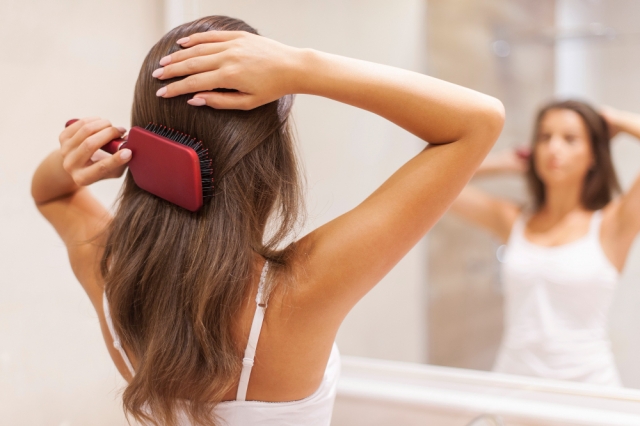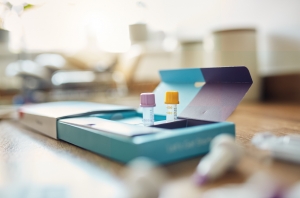Thick long curls are not only a matter of genetics, but also of many other factors, including care and properly selected vitamins. Here are some tips from online pharmacy Australia.
Why does hair fall out
Hormonal imbalance is reflected in the appearance. Due to an excess of the male hormone testosterone, hair begins to fall out - this problem also occurs in women. If you notice that the neck and temples are thinning, you should contact an endocrinologist: with hormonal disorders, vitamins will not save.
Other physiological conditions can be corrected by choosing the right diet and changing lifestyle. So, the cause of hair loss and slow hair growth is often a lack of protein in the diet. The condition of the follicles is also affected by chronic stress, problems of the gastrointestinal tract, inflammatory and dermatological diseases.
When the doctor rules out health problems, you can accelerate growth and maintain the beauty of the hair with the help of available vitamins. Like the rest of the body, hair needs nutrients to grow healthy.
How vitamins affect hair growth
Each hair is covered with a dense layer of keratin scales and consists of a shaft and a root that grows from a follicle under the skin. In the latter, biochemical processes take place, and their results are reflected in the state of the curls. Oxygen flows from the root to the ends of the hair, and vitamins activate the metabolism of nutrients in the cells. Therefore, with their deficiency, the hair becomes dull and brittle. It is impossible to “cure” regrown hair damaged by chemicals, but vitamins help to enhance the growth of beautiful new hair.
A professional doctor can diagnose a lack of vitamins by appearance, but analyzes and analysis of the diet will give a more complete picture. Proper care is equally important: frequent blow-drying, traumatic styling using hot tongs and aggressive products, as well as frequent dyeing can ruin your hair, and vitamins will no longer help.
Vitamin A
The tissues of the human body are constantly evolving and changing. Retinol promotes the production of sebum, which moisturizes the epidermis of the head and helps keep hair healthy. Vitamin A improves tissue regeneration and reduces skin flaking. It is made from beta-carotene and is found in potatoes, carrots, pumpkins, cabbage, and spinach, as well as fatty fish, eggs, liver, milk, and butter. But both deficiency and excess of retinol can lead to many problems, including hair loss.
B vitamins
Another name for the vitamin - biotin - is often mentioned in advertising for shampoos and nourishing masks. Studies have confirmed that its deficiency is directly related to hair loss. The body gets B vitamins from many foods, including almonds, fish, meats, whole grains, and dark greens. Biotin stimulates the creation of red blood cells that carry oxygen and nutrients to the scalp and hair follicles.
Vitamin C
The action of free radicals blocks hair growth and leads to hair loss. Ascorbic acid is a powerful antioxidant that helps protect the body from oxidative stress. In addition, it is involved in the synthesis of a unique protein - collagen - an important part of the structure of hair, nails and skin. Vitamin C promotes the absorption of iron, which is also necessary for the proper functioning of the follicles.
Vitamin D
Low levels of the “sunshine vitamin” are the cause of early baldness. In addition to supporting the work of the body, the substance helps to create new follicles for hair growth.
Vitamin E
By analogy with vitamin C, tocopherol is a good antioxidant that prevents destructive oxidative processes in the body. Scientists have proven that 34.5% of people experience an acceleration of hair growth when taking vitamin E for eight months.
Iron and zinc
In addition to the main vitamins, hair needs other substances for growth, elasticity and strength. Iron helps red blood cells carry oxygen to the cells, and its deficiency provokes anemia, one of the main causes of hair loss. To replenish the reserves of the element, you need to eat shellfish, red meat, lentils and spinach.
How to choose vitamins in the store
In specialized stores and pharmacies, many ready-made vitamin complexes marked “for hair” are sold. Try to ignore the promising slogans on the label and pay attention to the composition. Good, including inexpensive, supplements contain vitamins A, B, C, D, E, iron and folic acid are often added.
In addition to the composition, pay attention to the presence of a quality certificate. Be sure to read the reviews on products for growth and against hair loss in advance, as well as the method of application. It should be convenient for you to drink the recommended course without skipping or make vitamin masks at least several times a month to evaluate the result. If you choose an external vitamin remedy, make sure in advance that you are not allergic to any of the ingredients.
And remember that hair treatment should be approached comprehensively, combining the intake of dietary supplements with proper leaving. It is best to consult a trichologist in advance and choose the recommended products for washing and moisturizing the scalp.






